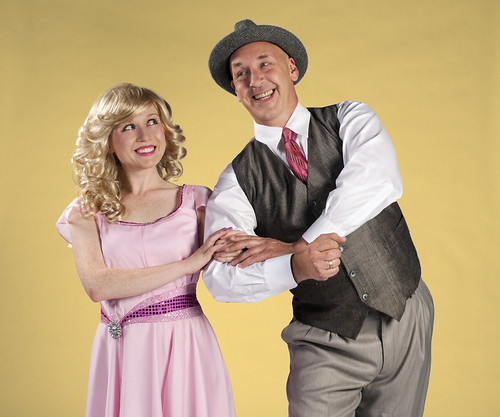 You have to believe we are magic: Chloe Condon is Kira, the muse from Mt. Olympus, and Joe Wicht is real estate mogul Daniel in the New Conservatory Theatre Center production of Xanadu: The Musical. Photo by Lois Tema Photography
You have to believe we are magic: Chloe Condon is Kira, the muse from Mt. Olympus, and Joe Wicht is real estate mogul Daniel in the New Conservatory Theatre Center production of Xanadu: The Musical. Photo by Lois Tema Photography
When I called playwright Douglas Carter Beane to interview him for a San Francisco Chronicle story on Xanadu: The Musical at the New Conservatory Theatre Center, he happened to be taking a break from rehearsals for his latest Broadway show, Lysistrata Jones. That musical, a hip, funny adaptation of the Aristophanes classic, happens to rehearse in the same building as the Foxwoods Theatre, home to Broadway’s notorious web slinger, Spider-Man: Turn Off the Dark.
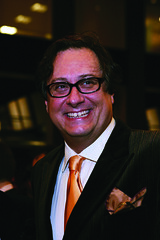 With his ear pressed to his cell phone, Beane surveyed the crowded sidewalk and quipped, “I hope people don’t think I’m buying tickets.”
With his ear pressed to his cell phone, Beane surveyed the crowded sidewalk and quipped, “I hope people don’t think I’m buying tickets.”
Lyssie Jay, as Beane calls it, opens Wednesday (Dec. 14) after a successful run off-Broadway. It’s something of a family affair what with Beane’s partner, Lewis Flinn, providing the music and lyrics and Beane providing the book. The story has been updated so that instead of Greek women withholding sex until the men stop warring, it’s now a college cheerleading squad withholding nookie from a losing basketball team until they start winning some games.
While San Francisco audiences get a gander at what magic Beane worked with Xanadu (he wrote the book), Beane is essentially storming Manhattan. There’s buzz about his libretto revision for Rodgers and Hammerstein’s Cinderella popping up next year. He’s also casting for The Big Time, what he describes as his “feel-good musical about terrorism.” The show is slated for off-Broadway. “The G-8 is on a cruise ship that’s taken over by terrorists, and the lounge singers on the ship end up saving the day,” Beane explains. “How would the Freed Unit at MGM back in the day deal with terrorism? It’s silly but very moving. I’m quite proud of it.”
He’s also working on a new play called The Nance for Nathan Lane (“the great genius Nathan Lane” as Beane puts it). “It’s a real period gay play I’ve been wanting do for a while,” Beane says. “It’s set in the world of burlesque and it’s about the gay stock comedy character, the nance.”
As if Beane weren’t busy enough (did I mention he also did all the re-writes on Sister Act: The Musical?), he and Flinn are raising two kids, Cooper, 7, and Gabby, 5. The secret to his success, he says, is: “A cute partner who is significantly younger. The children are also younger. Even our dog is younger.”
Visit the official website for Lysistrata Jones here.
Read my San Francisco Chronicle feature on NCTC’s Xanadu here.
FOR MORE INFORMATION
Xanadu: The Musical continues through Jan. 15 at the New Conservatory Theatre Center, Decker Theatre, 25 Van Ness Ave., San Francisco. Tickets are $25 to $45. Call 415-861-8972 or visit www.nctcsf.org.

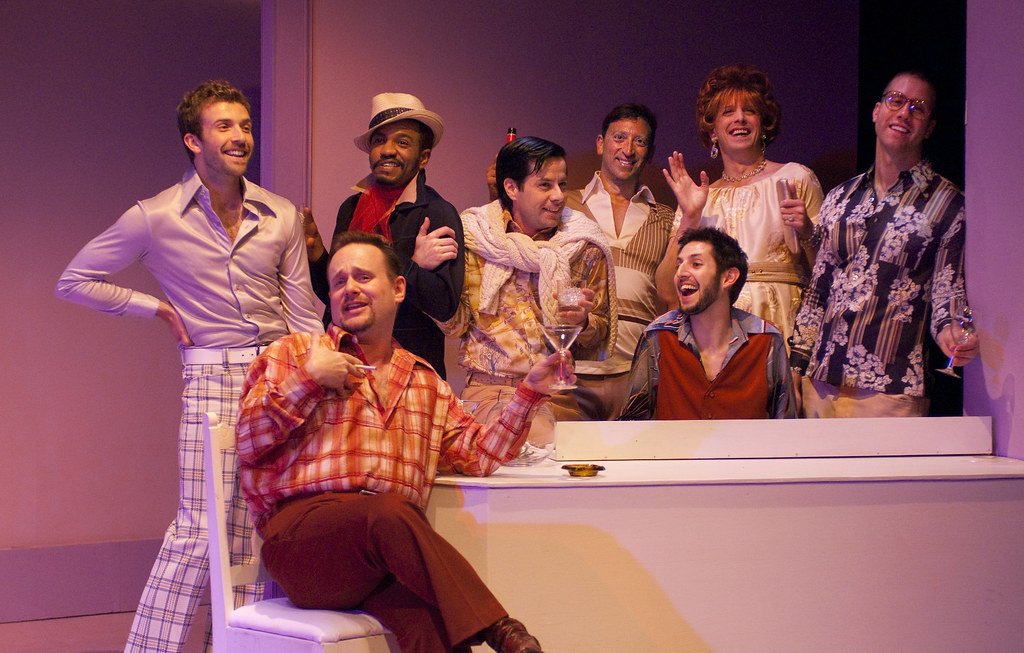
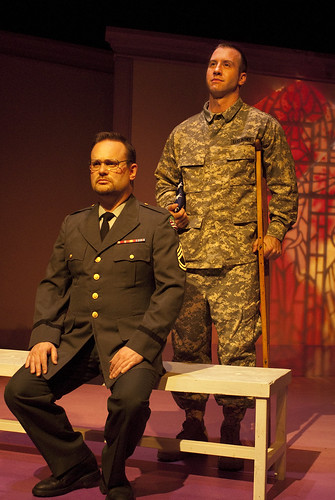
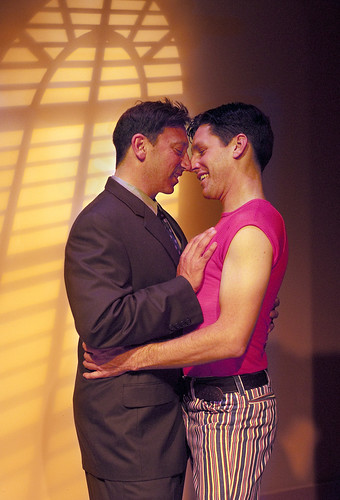


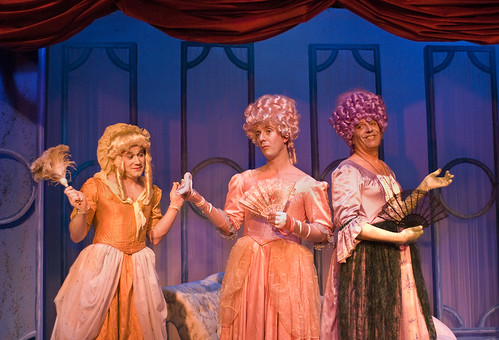

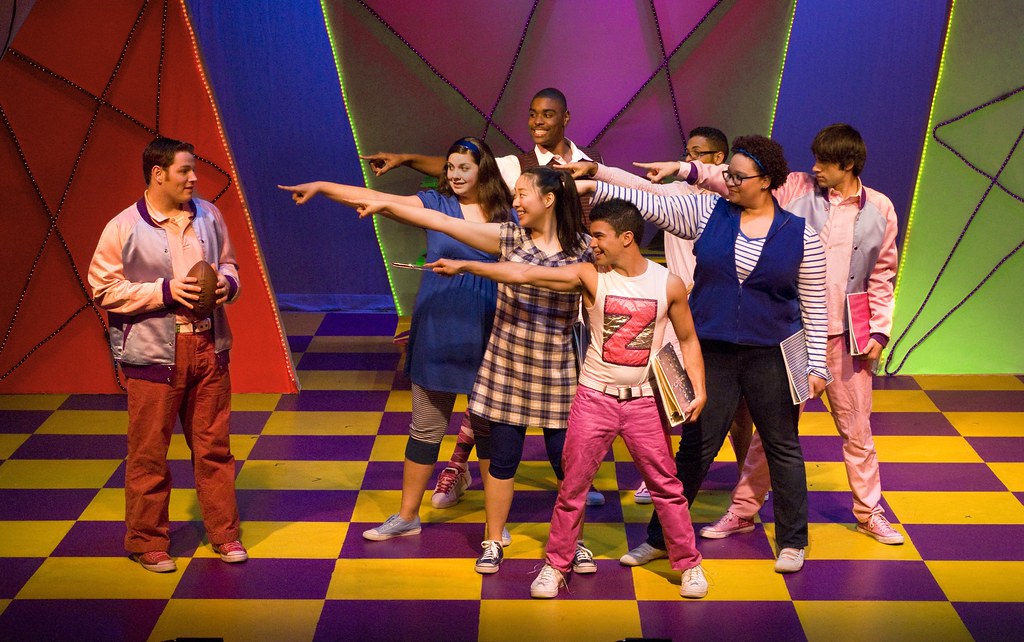
 Even Zanna (the adorable Price Adam Troche Jr., right) and his trusty wand can’t help without changing the course of history.
Even Zanna (the adorable Price Adam Troche Jr., right) and his trusty wand can’t help without changing the course of history.





